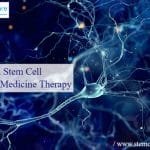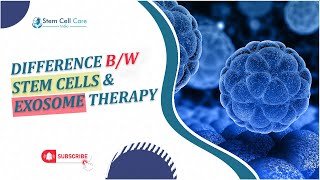Table of Contents
Stem cell therapy has garnered significant attention for its potential to treat a number of medical conditions, ranging from degenerative diseases to traumatic injuries. However, one question that often mainly arises is whether there is an age limit for undergoing stem cell therapy. In this blog, we will explore the implications of age on stem cell therapy, the considerations for different age groups, and the current state of research.
Understanding Stem Cell Therapy
Stem cell therapy involves the use of stem cells to repair, regenerate, or replace damaged tissues and cells in the body. Stem cells have the unique ability to develop into different cell types, making them a powerful tool in regenerative medicine. There are a number of types of stem cells used in therapy, such as:
- Embryonic Stem Cells (ESCs): Derived from early-stage embryos, these cells can develop into any cell type.
- Adult Stem Cells (ASCs): Found in various tissues, these cells are more limited in their ability to differentiate compared to ESCs.
- Induced Pluripotent Stem Cells (iPSCs): Adult cells that have been genetically reprogrammed to an embryonic-like state. It allows them to differentiate into various cell types.
- Age and Stem Cell Therapy: The effectiveness and suitability of stem cell therapy can be influenced by age, but there is no absolute age limit for treatment. Given below is how the age factors into the equation:
-
Pediatric Patients
Advantages:
- Regenerative Potential: Children and adolescents generally have a higher regenerative capacity. Their stem cells are more robust and can potentially yield better therapeutic outcomes.
- Rapid Healing: Younger patients often experience faster healing and recovery times, which can enhance the effectiveness of stem cell treatments.
Considerations:
- Ethical Concerns: The use of certain types of stem cells, especially embryonic stem cells, raises ethical questions that are particularly sensitive in pediatric cases.
- Long-Term Effects: The long-term effects of stem cell therapy in children are still not fully understood, necessitating careful consideration and long-term monitoring.
-
Adult Patients
Advantages:
- Mature Immune System: Adults have a fully developed immune system, which can reduce the risk of adverse reactions compared to pediatric patients.
- Availability of Adult Stem Cells: Adult patients can often provide their own stem cells (autologous therapy), reducing the risk of immune rejection.
Considerations:
- Aging Stem Cells: As individuals age, their stem cells also age, potentially reducing their regenerative capacity and effectiveness.
- Comorbidities: Adults, particularly older adults, may have additional health conditions that can affect the safety and efficacy of stem cell therapy.
-
Elderly Patients
Advantages:
- Targeting Age-Related Conditions: Stem cell therapy holds promise for treating age-related degenerative diseases such as osteoarthritis, Alzheimer’s disease, and cardiovascular diseases.
- Improving Quality of Life: For elderly patients, stem cell therapy can potentially improve mobility, reduce pain, and enhance overall quality of life.
Considerations:
- Reduced Regenerative Capacity: Elderly patients’ stem cells may have a diminished ability to regenerate tissues effectively.
- Higher Risk of Complications: The presence of chronic conditions and weakened immune systems in older adults can increase the risk of complications from stem cell therapy.
- Ethical and Practical Considerations: The ethical implications and practical benefits versus risks must be carefully weighed. Especially given the varying responses to treatments in older adults.
Current Research and Clinical Trials
Research into stem cell therapy is ongoing, with numerous clinical trials investigating its efficacy and safety across different age groups. Given below are some of the common key areas of focus include:
- Regenerative Medicine: Studies are exploring how stem cell therapy can be used to regenerate tissues in conditions such as osteoarthritis, spinal cord injuries, and heart disease.
- Neurological Disorders: Research is being conducted on the potential of stem cell therapy to treat neurodegenerative diseases like Parkinson’s and Alzheimer’s.
- Autoimmune Diseases: Clinical trials are investigating the use of stem cells to modulate the immune system and treat autoimmune conditions such as multiple sclerosis.
Conclusion
While there is no definitive age limit for stem cell therapy, age is an important factor that influences the suitability and effectiveness of the treatment. Pediatric, adult, and elderly patients each have unique advantages and considerations that must be taken into account. The decision to undergo stem cell therapy should cell therapy should be made on a case-by-case basis. Consider the specific condition, the type of stem cells used, and the individual patient’s overall health.
Advances in stem cell research continue to expand the potential applications and improve the outcomes of these therapies. As our understanding of stem cells deepens and new technologies emerge. The hope is that stem cell therapy will become a more accessible and effective treatment option for individuals of all ages. Consulting with a healthcare professional and considering participation in clinical trials can provide additional insights and opportunities for those interested in exploring stem cell therapy. SCCI, stem Cell Care India is one of the leading healthcare consultants in Delhi. They help you to give the best advice, and find the best place, at an affordable price.













